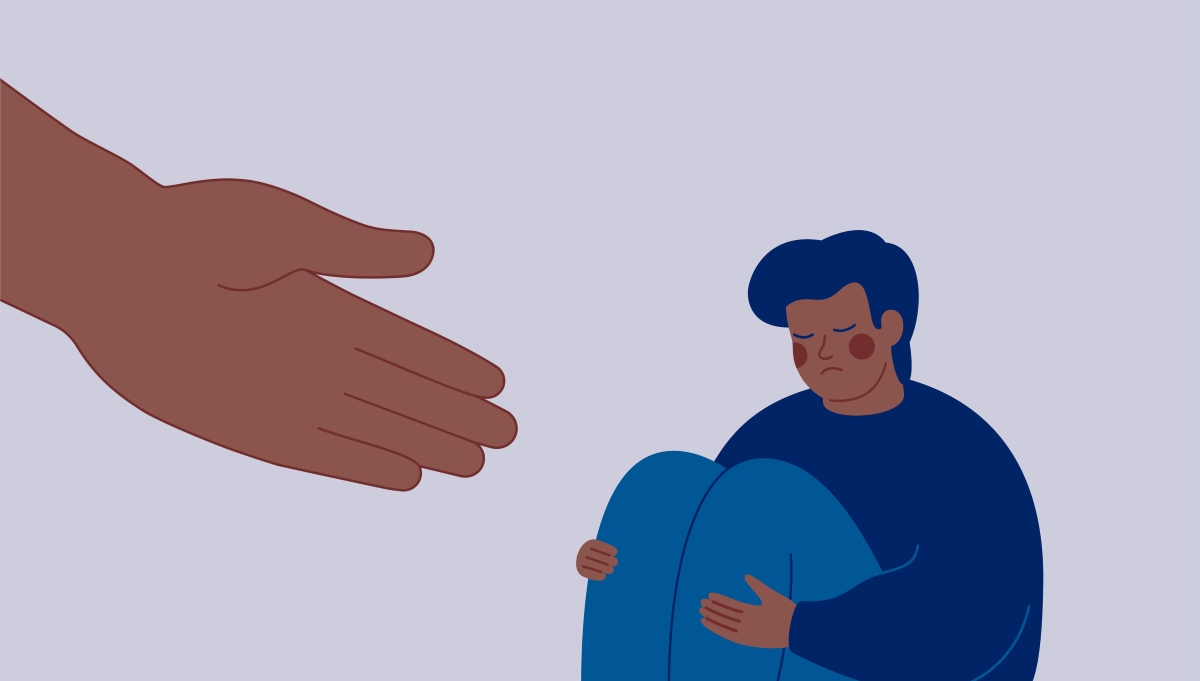“I regret not having done anything,” “I suspected something,” “Everyone knew…”: these are common comments when a case of violence, bullying, or harassment becomes public and it’s too late. The question is: why?
When multiple people witness violence or bullying, it’s not uncommon for nobody to react because everyone’s hoping someone else will step in; this is known as the bystander effect. People may also question the seriousness of the situation: “If others aren’t reacting, I must be misunderstanding what’s happening” (perception). Finally, when witnesses know each other (from the same school or workplace), they may want to protect themselves from reprisals by not speaking up.
Remember that no form of harassment is tolerated at INRS. Silence and inaction allow harassment to continue, and it’s everyone’s duty to put a stop to it.
People who are being harassed are often aware they’re going through some issues, but may not qualify them as harassment. An outside perspective helps them to better understand what they’re going through. As a witness, you can help the person become aware of the need to take action.
Witnesses have an important role to play in maintaining a healthy, harassment-free environment. They can help the person break their climate of fear.
As a witness, you don’t have to conduct an investigation or gather evidence that a situation is harassment. If you have serious concerns, you must try to help the person break the silence.

What do I do?
Silence is not an option. Unresolved conflicts, incivilities, and humiliations are key ingredients of an unhealthy work or study environment. They open the door for harassment.
Depending on their reactions as a group, witnesses can help to break or maintain the climate of fear and silence that goes hand in hand with harassment. By giving their side of the story, witnesses can prevent conflict from escalating and help to bring it to an end.
What should i do if i witness sexual violence?
Once you’ve assessed the situation, if you’re in a position to act safely, stop the sexual violence, either by confronting the abuser or by helping the victim escape the situation.
If the person is in danger, or if you fear for their safety or your own, call 9-1-1.
What should i do if i think my colleague is experiencing domestic violence?
Research shows that domestic violence doesn’t stop at the home—it carries over to the workplace or school. In 2014, the Canadian Labour Congress and the University of Western Ontario conducted an extensive survey on domestic violence in the workplace. It found that:
- 33.6% of respondents said they had experienced domestic violence in their lifetime. Of these, over 53% said that the domestic violence continued at work.
- 40.6% experienced harassment by telephone or text message.
- For 18.2%, the abuser came to their workplace.
- 20.5% had been followed or harassed near their workplace.
- For 14.5%, the abuser contacted colleagues or the employer to talk about the target.
- 71% of employers have had to protect someone who’s experiencing domestic violence.
Here are the signs that someone may be experiencing domestic violence. Please note, however, that these signs may also be caused by other problems or situations unrelated to domestic violence.
- The person receives a lot of personal calls or text messages
- Their partner often drops by the office and waits for them at the exit or in the parking lot
- They are more likely to arrive late or to be absent
- They isolate themselves from the rest of the team and withdraw into themselves
- They almost always decline invitations to activities
- Their professional or academic performance declines because they’re having trouble concentrating
- They can no longer accomplish all their tasks and meet deadlines
- They always seem anxious and on edge
- They have fractures or visible injuries
- Their colleagues receive calls from their partner
- They ask for rearrangements in their office space or changes to their working hours
Are you feeling unsure? Take a look at the resources page to help you recognize the signs and figure out the best way to react.
Would you like to take action in a situation where you’ve noticed signs of domestic violence?
First, find a good time and place to discuss it with the person.
Then begin your discussion by assuring them that they have your support and that the conversation will be confidential. It will probably be difficult for them to open up and talk about what they’re going through.
Make sure the person knows your conversations are confidential.
Use “I” statements.
“I’m worried about you.”
“I’m concerned about your situation.”
“I noticed that…”
Describe what you saw, heard, or felt as clearly and objectively as possible.
“I heard…”
“I saw that…”
“I feel like…” or “I sense…” (e.g., “I sense that you haven’t been feeling well lately.”)
Believe the person, don’t question their feelings, and don’t make them feel responsible for the violence.
“I believe you.”
“It’s not your fault.”
“Violence is unacceptable.”
Reassure the person.
“I’m here for you.”
Let the person make their own decisions.
“I support you, no matter what you decide.”
Make sure they know that there are resources available and that people are ready to help.
Refer to the available resources depending on their situation.
Thank the person for trusting you: it can be very difficult for someone to talk about their abuse.
Respect your own limits.
Loved ones often feel helpless and powerless in the face of the issues and distress caused by domestic violence. SOS violence conjugale offers advice and information on how to help.
Domestic violence and telecommuting or distance learning

Since the COVID-19 pandemic, it has become increasingly common to work or study from home. These new habits can increase the risk of domestic violence. By being in the presence of their abuser all day long, people find themselves even more isolated and susceptible to more frequent and more serious acts of violence.
There are ways to support members of your community, even from a distance.
Here are a few suggestions:
- Keep in touch with your colleague and let them know you’re there for them by calling or writing regularly.
- Suggest going for a walk or a coffee.
- Offer them the opportunity to come and work or study in person.
- Choose a code word or phrase with the person that they can use if they’re in danger.
If they give it, call them on their cell and ask yes-or-no questions: - “Are you in danger?”
- “Do you want me to call 9-1-1?”
- “Do you want me to call a shelter for you?”
- “Do you want me to call someone in your family?”
Resources
It’s important to help the person by listening, without judging or questioning. You also need to direct them to resources that can help.
Take a look at the resources available for dealing with psychological harassment, discrimination, incivility, sexual harassment, sexual violence, or domestic violence.


